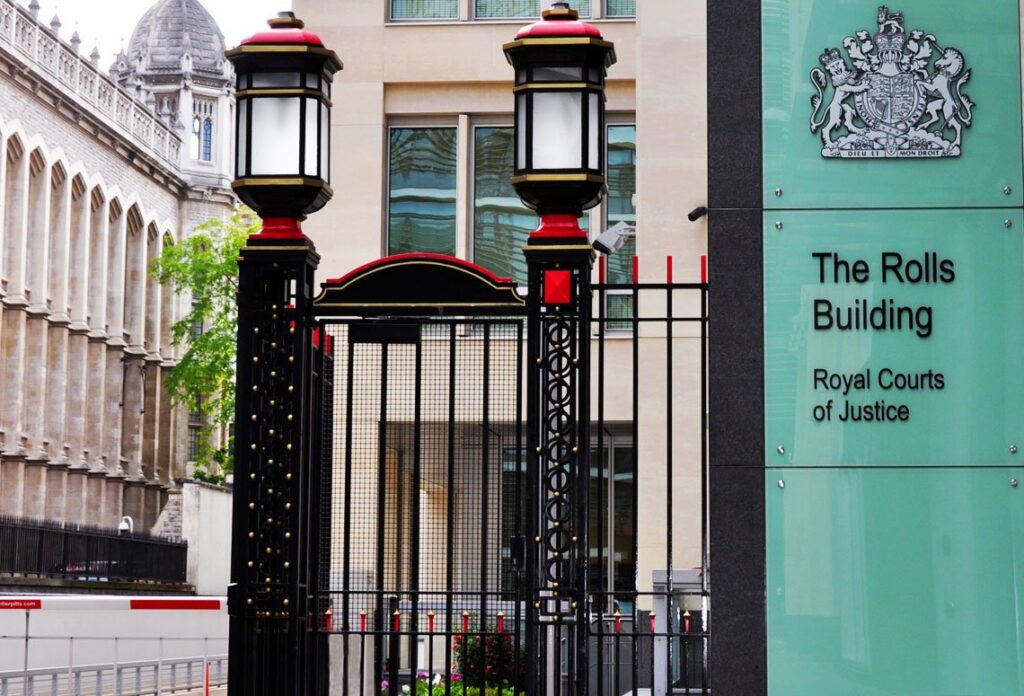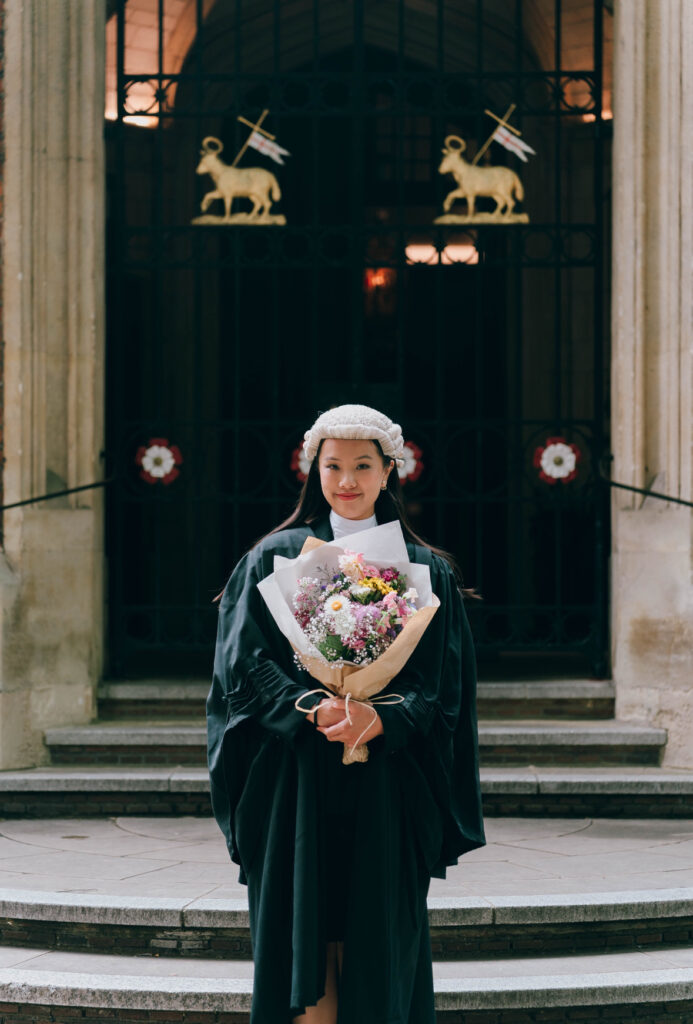COIN – my time at the winding up court
The Company Insolvency Pro Bono Scheme (COIN) was founded by Marian Riley-Poku in 2014 to provide free legal advice and representation for litigants-in-person in the winding up court. The scheme is assisted by students on the Bar Course at The City Law School and volunteer barristers from the Chancery/Commercial Bar. It operates from consultation room 17 in the Rolls Building, Fetter Lane on Wednesdays from 9.30am until 1pm.
Angelique was one of our students on City Law School’s Bar Vocational Studies LLM (Clinical Legal Education), who excelled in her duties whilst assisting the barristers and clients in court, and also wrote for the COIN blog. Here’s her account of her time with COIN.
With a warm cup of coffee in one hand, I strolled past Fetter Lane and made my way toward The Rolls Building, arriving at 9:30 AM. This routine, one I cherished deeply, marked my monthly Wednesday routine as a student volunteer with the Company Insolvency Pro Bono Scheme (COIN).

I applied for the COIN scheme in early September 2024, as part of my LLM, hoping to gain firsthand legal experience in the High Court of Justice (Chancery Division). It has since become one of the most enriching aspects of my bar school journey. For students interested in corporate insolvency law and its real-world applications, COIN offers an invaluable opportunity.
As volunteers, we had the privilege of assisting barristers from prestigious chambers such as Wilberforce Chambers, Gatehouse Chambers, South Square and CANDEY, in providing free legal advice and representation to litigants-in-person, primarily from small and medium-sized businesses. Our responsibilities were varied, yet integral to the day’s proceedings. Our roles are divided into three main tasks: one volunteer managed the consultation room, another supported in the courtroom, and a third acted as a runner, relaying messages between the consultation and courtroom. We were also responsible for taking case summaries, ensuring clients complete necessary authorisation forms, and keeping the barristers updated on new clients in the consultation room or signalling when it’s time for them to enter the courtroom to represent clients. Though our roles may have seemed modest at times, each of us played a pivotal part in ensuring the seamless operation of the day.
The COIN scheme offers a unique opportunity to witness court proceedings up close, including winding-up petitions, applications for adjournments and rescissions. We saw barristers advocating for their clients, seeking orders like usual compulsory orders, adjournments, or dismissals.

The courtroom experience is fast-paced, with approximately 200 applications handled in about 2.5 hours from the 10.30am slot to the “not before 12.30pm” slot. The rapid-fire pace of the proceedings, where decisions were made in minutes, required not just efficiency, but acute attention to detail. The barristers’ applications were usually very brief and concise, with orders sought and granted within minutes. With that, you can see the student volunteers, who are allocated to the courtroom, doing their best to keep up with the speed of the proceedings while frantically scribbling notes to record the details of the case and the orders granted by the court.
Furthermore, the COIN scheme has been an incredibly rewarding experience, both professionally and personally. I have learned a great deal, encountering legal terms and procedures like “second time around,” validation orders, CVLs (Creditors’ Voluntary Liquidations), and CVAs (Company Voluntary Arrangements). As a bar school student, I found that observing these processes in action sharpened my legal skills in advocacy skills and conference skills, which significantly helped me during my bar school assessments.

In terms of soft skills, working with the scheme, where I interacted face-to-face with clients and fellow student volunteers, had taught me valuable client management skills and teamwork skills. We worked with clients from diverse backgrounds. Some of them came to us worried, confused, distressed or lost, in terms of how the court procedures and applications work. This is why our scheme exists to provide assistance to those in need of help. Moreover, I found it fascinating to see how Civil Litigation, a module from bar school, played out in a real setting in the court. For instance, the requirement to file, serve and gazette of winding-up petitions. Additionally, we observed how barristers consistently upheld the ethical standards set by the Bar Standards Board (BSB) in their work and interactions with clients and colleagues in the court.
One of the most rewarding aspects of the COIN scheme is the strong sense of camaraderie developed among fellow student volunteers. The opportunity to network with experienced barristers further elevates the experience, offering invaluable chances to form relationships that will benefit us throughout our careers. Being part of the scheme doesn’t simply provide memorable stories to share, it also adds substantial value to your CV, demonstrating hands-on experience in a prestigious legal setting. Additionally, the scheme offers students a unique opportunity to contribute to and write for the COIN blog, allowing us to dive deeper into topics of personal interest while honing our research and writing skills.

Overall, I wholeheartedly recommend the COIN scheme to students eager to gain practical experience and develop their skills in a real-world legal environment. This experience has not only broadened my understanding of corporate insolvency law but also reinforced my appreciation for the skills, professionalism, and dedication required to become an exceptional barrister.
Angelique Tek was a student volunteer with the Company Insolvency Pro Bono Scheme (COIN) from 2024-2025. She pursued her LLM Bar Vocational Studies (BVS) with Corporate Law and Practice specialism at City St George’s, University of London, as an international student from Malaysia.
Outside of her legal interests, Angelique enjoys scuba diving, painting, cooking, and hosting for friends and family.
